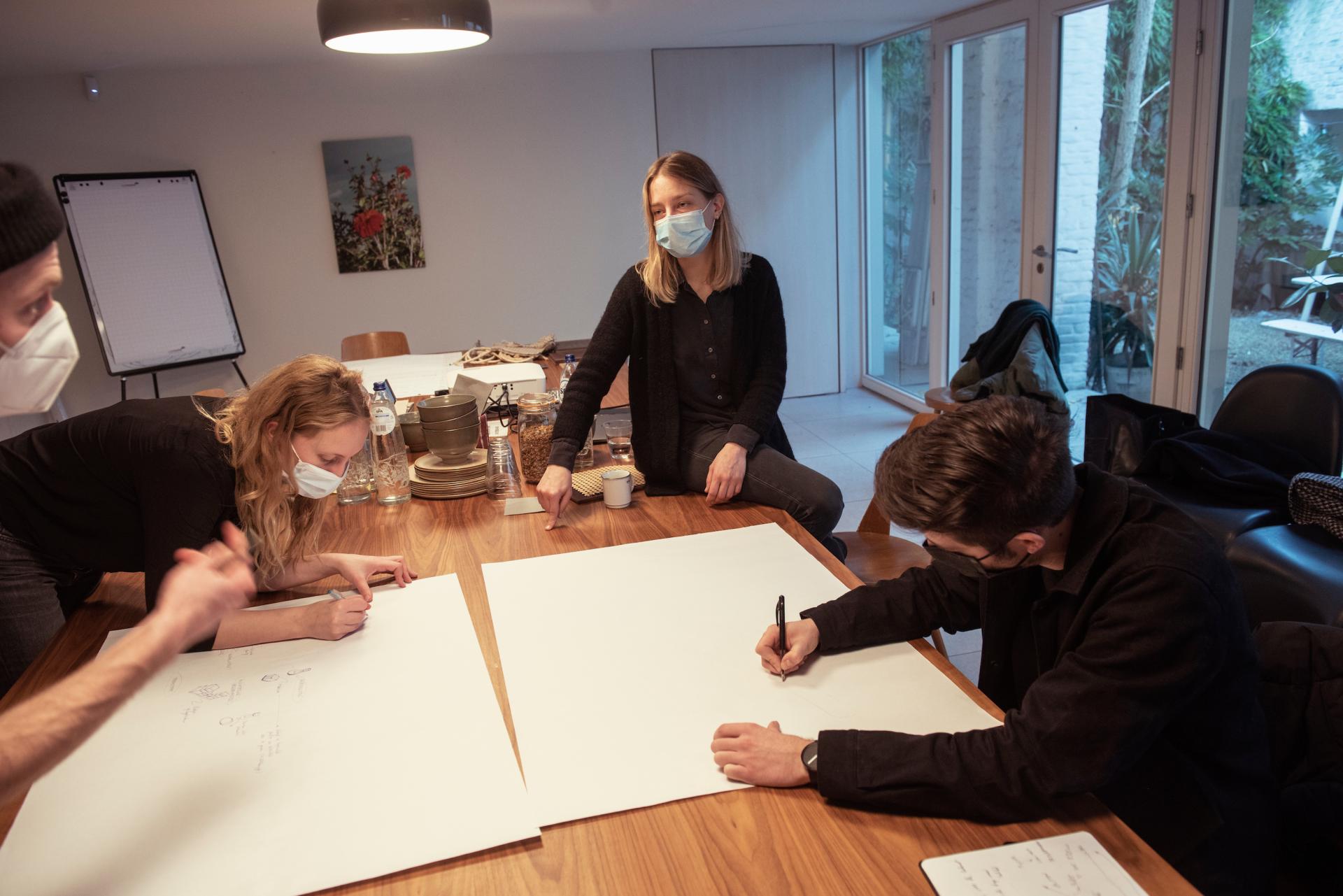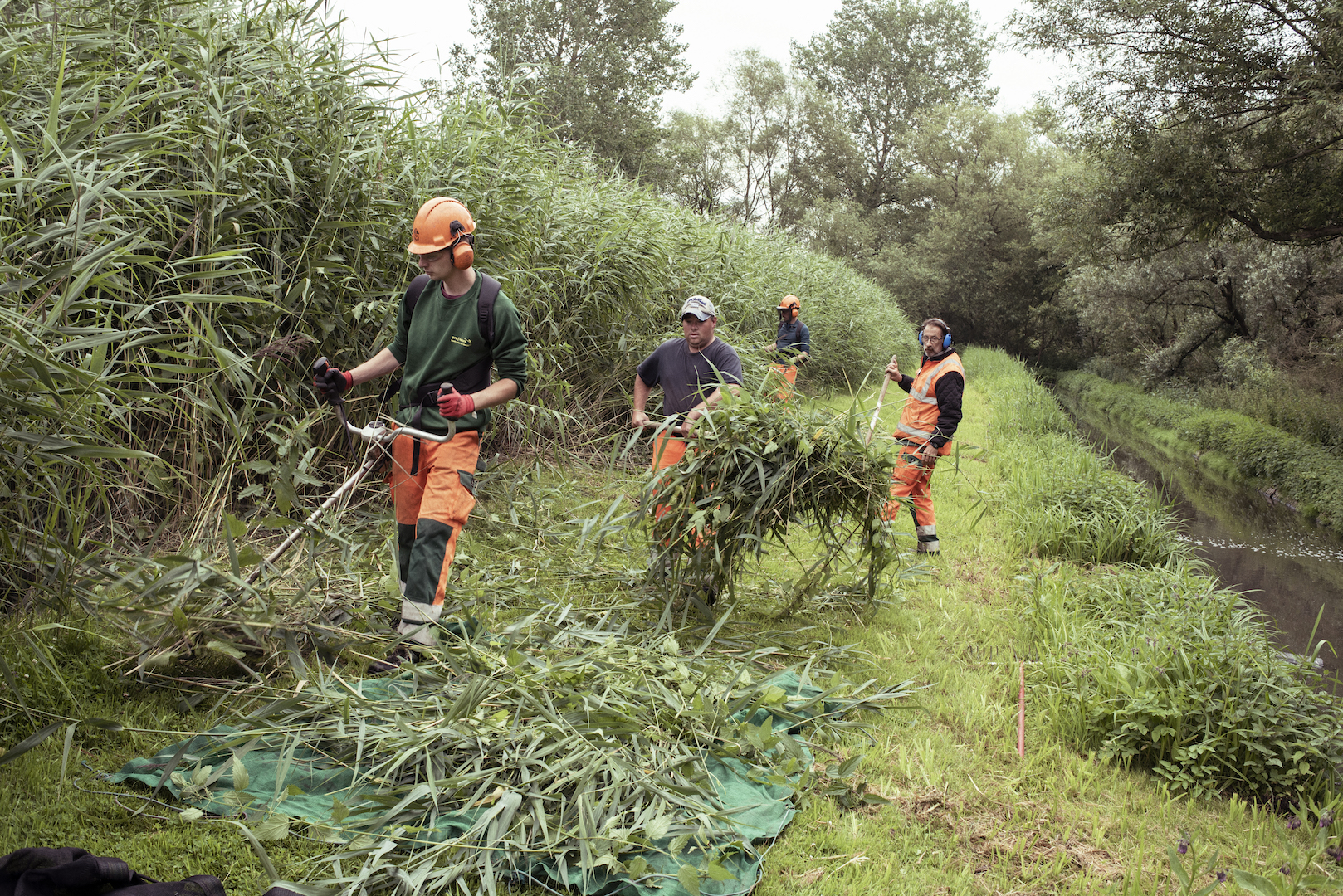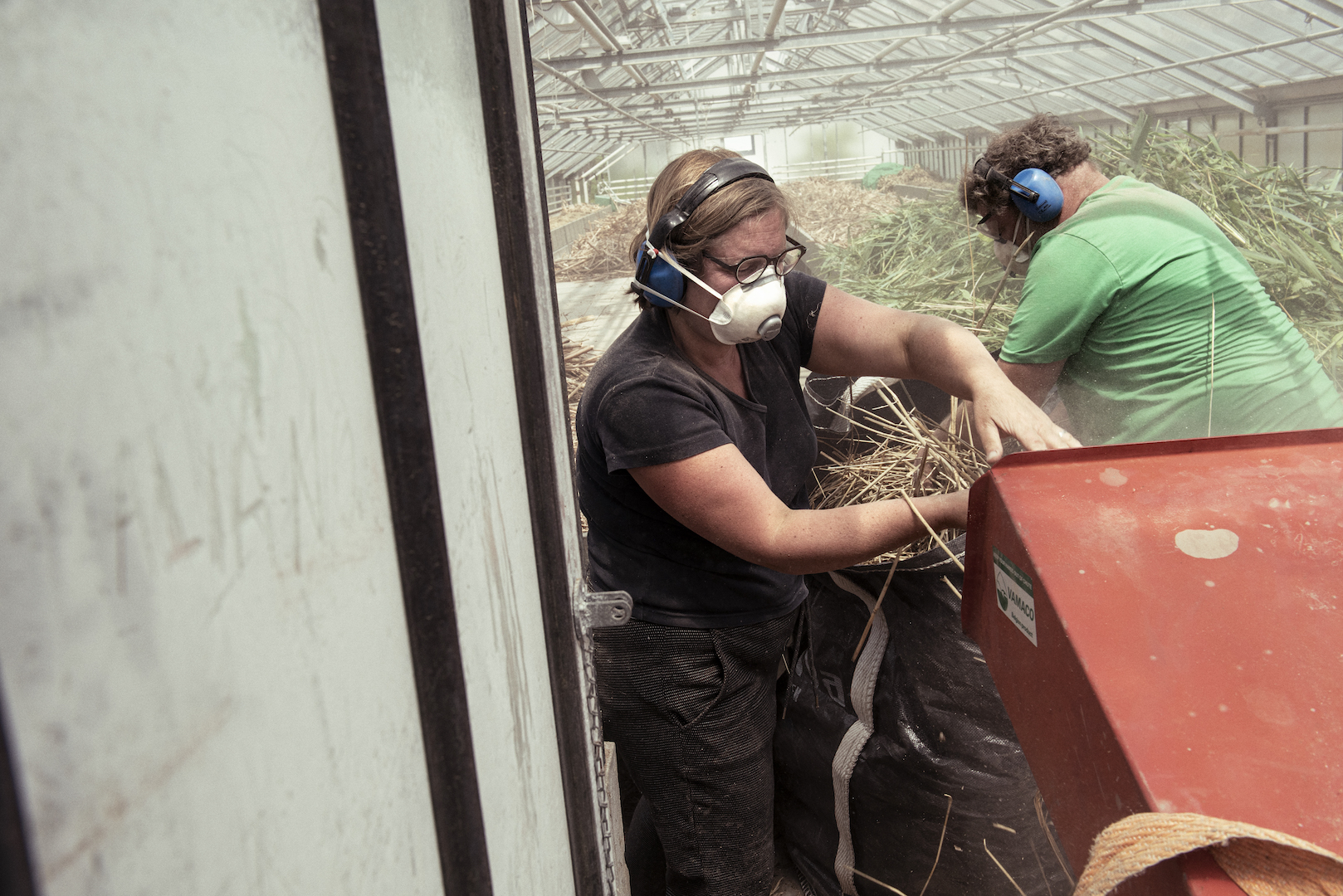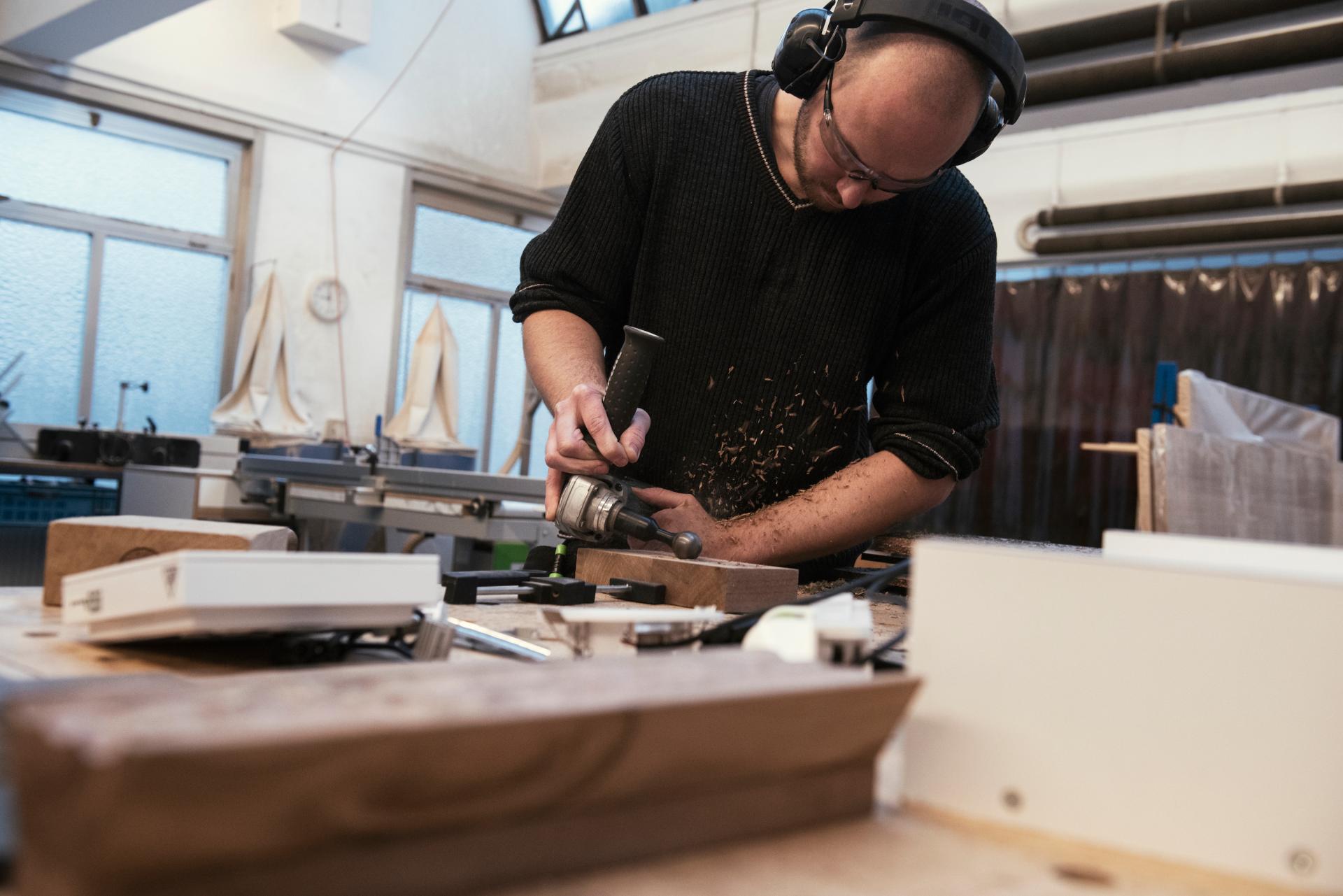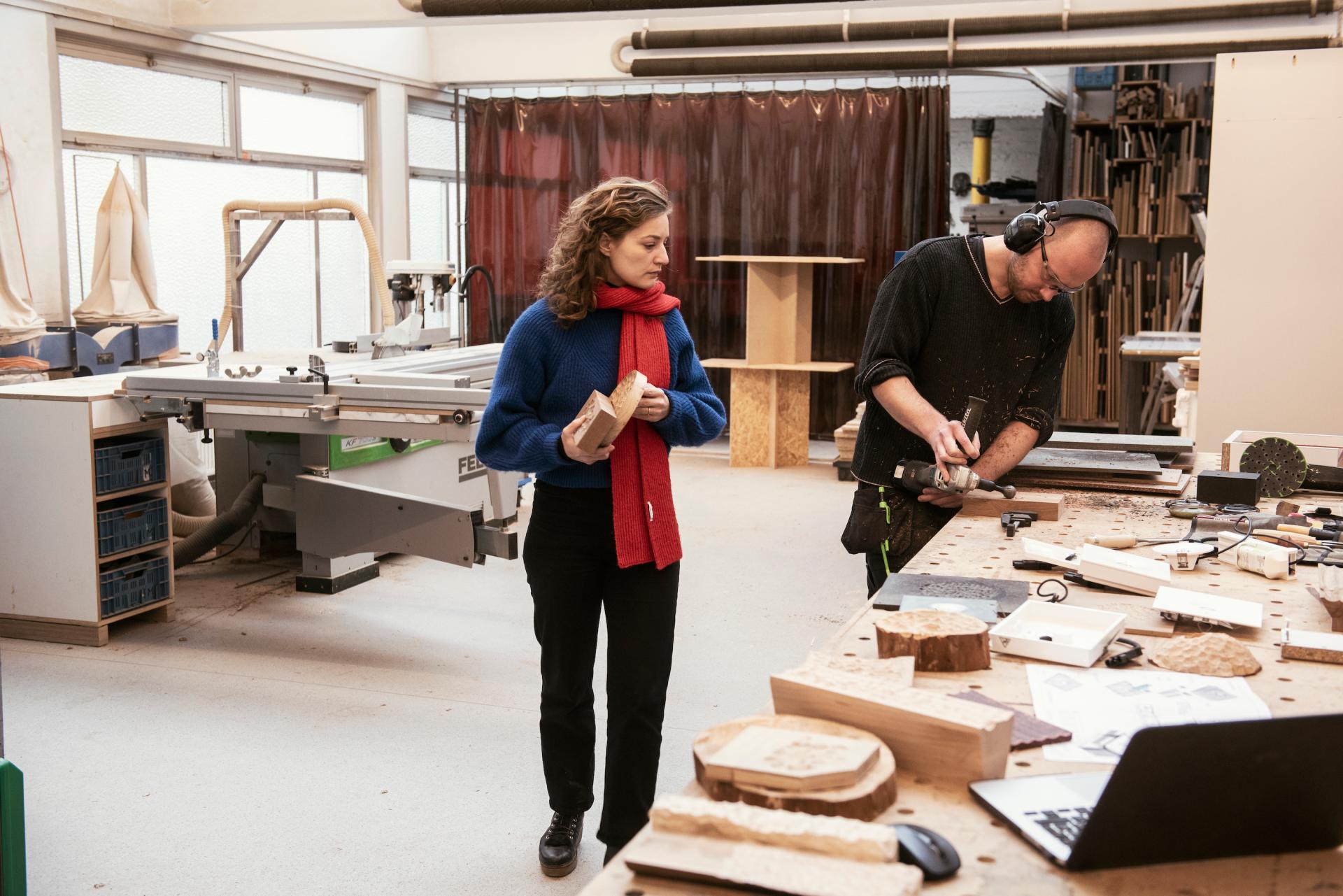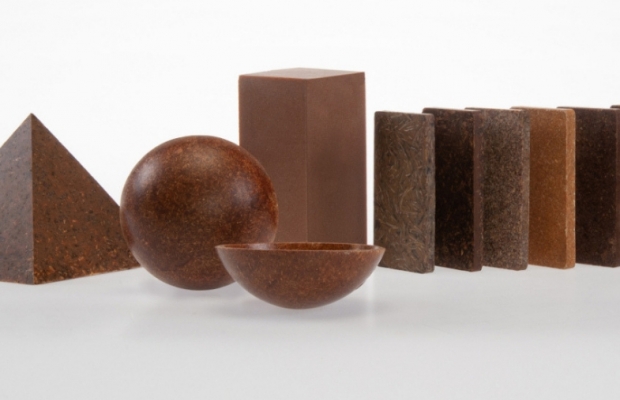UNchain
Basic information
Project Title
Full project title
Category
Project Description
UNchain is a co-creative design method that leverages the potential use of nature-based materials in the manufacturing industry. New local ecosystems arise when product designers, manufacturing companies, and social organizations work together. The result: Exciting partnerships, beautiful products free of fossil and mined resources, and local value for all.
Geographical Scope
Project Region
Urban or rural issues
Physical or other transformations
EU Programme or fund
Which funds
Description of the project
Summary
Manufacturers are aware of the need for alternatives to fossil raw materials. Interest in using natural materials is increasing, due to rising prices and climate awareness. This transition requires a change in the way products are designed and produced. Decades of expertise in processing plastics and other materials must make way for the use of a completely different type of material. Many creative organizations in Europe are working on the use of these materials.
The matching between manufacturing companies and designers is urgent to take steps in the bio-based transition. New design methods are needed to help designers and companies.
Using natural residual streams as the basis for biomaterials requires also a societal switch and creates opportunities for social inclusion. More customization and therefore human capacity is needed. Local diversity and creativity can ensure that local hubs make the most of their strengths.
UNchain is a method that brings together manufacturers, creative designers, and social organizations. They exchange ideas, knowledge, and skills to apply natural material to new fossil-free products. The idea is to create a local value chain from mining, design, production, use, and recycling. This chain makes maximum use of the local resources, creativity, and human skills.
Cleantech start-up Circular Matters developed a plastic-like carbon-negative biopolymer as a binder for natural waste streams such as reeds and grasses. The material is 100% free of fossil resources.
Founder Pieter Dondeyne and social entrepreneur Sep Verboom started up the first experiment in Flanders. 3 companies were matched with 3 creative studios to develop new products and solutions. The biopolymer was the basis of the design challenge. The result: Interesting prototypes, creative insights, and a new type of partnership.
UNchain will take the next step and engage more European companies, designers, and social organizations in an exciting journey.
Key objectives for sustainability
As an alternative to fossil-based resins and plastics, Circular Matters was founded with the idea to rescue plant-derived raw materials from low-value applications and turn them into high-quality panels and molded products.
The materials come from residual streams such as reeds and grasses, and therefore give a second life to waste and avoid the use of scarce raw materials. No synthetic chemicals in means no synthetic chemicals out; so, no chance on health and pollution problems typical to VOCs or (micro)plastics.
The material can be produced with less environmental impact than traditional alternatives (like traditional plastics or PLA) while maintaining the potential to biodegrade at the end of its lifetime.
Because the material no longer needs a finishing layer such as paper or veneer, it is scratch-resistant and easy to recycle.
The material has the potential to be carbon negative, as indicated by an independent a study led by Flemish research institute VITO.
The type of material is suitable to create new local value chains. This avoids long transport and mining of (scare) raw materials (oil, …).
With the UNchain method, every step in the value chain, from mining to end-use and recycling, can be organized locally. Crops vary between European regions, but there is always an availability of natural residual streams. Applications can be more tailor-made to regional needs and knowledge.
The greatest ecological impact is in the combination of the carbon-negative material and the way it is created and applied. This combination of technological and social innovation can inspire other European regions to use the richness of nature to create new types of welfare, benefitting from local resources creativity, and skills.
When several European hubs bring together manufacturing companies, local creatives, and social workshops this can accelerate the nature-based materials in European manufacturing
Key objectives for aesthetics and quality
UNchain wants to show the world how different types of natural residual streams can form the basis for new products, without compromising on quality or aesthetics.
Founders were inspired by the Bauhaus principles like ‘true materials’, ‘form follows function’, ‘minimalism’ and ‘simplicity’.
The applications are less standardized and more realistic and human than the mainstream products we are familiar with. End-users know what the products are made of and how it is made. The transparency ensures a more conscious use of the material. A lot of work is done around the tactile experience of users, which is completely different from familiar materials.
Specifically for the developed biopolymer of Circular Matters, good mechanical performance of the material (strength, appearance, smoothness ...) has been proven by testing, adopting, and redeveloping over the past years. The material can compete with plastics and other materials.
However, its application still needs further development if it wants to become the material of the future.
The design method challenges to enable endless applications for new products. The flexibility of the material offers enormous possibilities for product design:
- Good dimensional stability when CNC-milling
- Several surface finishing possibilities, including high gloss
- 3D molding
Creative studios involved in the test track were extremely excited by the great potential of the circualr Matters material.
Working with bio based materials opens new perspectives and opportunities for a generation of product designers that want to have an impact on the world.
In the initial tests, prototypes were developed for light switches, lighting fixtures, and finish and furnishings of joinery.
By co-creating from the start with different disciplines, the variety in the final result is great.
Key objectives for inclusion
Job creation
Bio-based materials usually cannot be used in a standardized and automated way. Processing requires manual labor on a smaller scale. People with a distance from the labor market can be engaged through sheltered workspaces for both harvestings the residual streams and processing the material. They are involved in the learning process and get more valued jobs than before.
Creative studios are rewarded at their true value by setting up a method early in the process to think about new solutions for companies. They get opportunities to play a central role in product development with new circular materials.
Manufacturing companies get access to another design method that leads to innovative products. Existing and new employees get exciting challenges in their jobs.
Co-design
“Technology and innovation mean nothing without a new type of collaboration and a value chain that is fitting with the sustainable mission of the company”.
UNchain is a truly collaborative and co-creative concept. Designers, social organizations, and suppliers of natural materials are involved at an early stage. They exchange ideas, views, and knowledge. This close collaboration creates a new sparkling innovative vibe at the regional level. The ‘Gesamtkunstwerk’ idea of Bauhaus has inspired the partners to create and produce products that are the result of the combination of expertise and knowledge available at a small scale.
Products are cheaper than natural alternatives such as wood, as 3D molding makes various forms and structures possible. This is making the material accessible for people of all demographics and income levels.
End-users get access to affordable and fair, locally sourced products. The raw material comes from waste streams, which makes it cheaper.
A shorter and local value chain (avoiding transport of raw materials from all over the world), gives fair incomes to all actors.
Physical or other transformations
Innovative character
The concept was conceived and tested in Flanders, using the Circular Matters biopolymer as a base. The material lends itself to setting up local value chains to counterbalance non-transparent products.
The process was set up by engaging
- 3 manufacturing companies, invited by an ‘open call’ to step into a process to design or improve products using nature-based materials.
- 3 designers and creative studios, who were matched with the companies. They needed to co-create new products with the companies.
- Circular Matters was involved in an early stage to adapt the material in terms of strength, color, quality, shape…
- Employees of local sheltered workspaces, that collected the residual plant streams in the environment and helped to manufacture prototypes.
Setting up the collaboration provided an insight into the possibilities of the material and how the collaboration and the process could be set up. Learning lessons included:
- The variation in raw materials and design possibilities.
- The role of social workshops can go wider than 'harvesting' raw materials. People with a distance from the labor market can have a nice role in clear production tasks.
- It is not easy to find companies that dare to work with the material but once involved they are enthusiastic.
UNchain is about daring to try, make mistakes, try again, and become wiser together. An open-source innovation method should be distilled for the longer term. Other companies, organizations, or regions must be inspired and find a connection to work with the same or similar natural materials.
The concept combines environmental solutions with open-source creativity and social inclusion. This shortens the long and untransparent chains of plastics and other materials. It offers a solution for industrial companies to integrate new circular materials into mainstream industries. It lifts the potential of nature-based solutions and accelerates the transition towards a circular economy, creating value for all.

